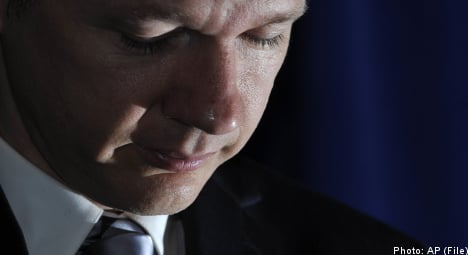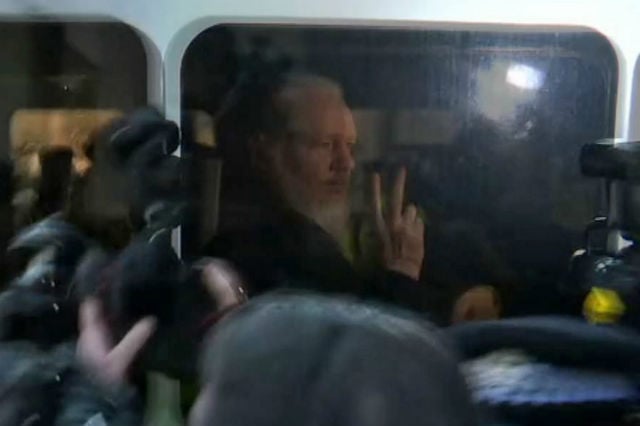According to the court’s 5-2 ruling, the Swedish prosecution authority which issued the warrant for his arrest is indeed a valid judicial authority and thus had the right to issue the warrant for Assange.
“The request for Mr Assange’s extradition has been lawfully made and his appeal against extradition is accordingly dismissed,” said Supreme Court president Nicholas Phillips.
At issue was whether or not a public prosecutor was included in the definition of “judicial authority” as it used in the UK’s Extradition Act of 2003.
“By a majority the court has concluded that the Swedish public prosecutor was a “judicial authority” within the meaning of both the framework decision and the Extradition Act,” the court said in a statement.
Lord Phillips explained that the English term “judicial authority” stems from the French term “autorité judiciaire” which does indeed include courts and judges, as well as public prosecutors.
But in an unexpected twist, Assange’s lawyer Dinah Rose asked the judge for 14 days to consider whether to apply to reopen the case on the grounds that the judgement referred to material not argued in the court.
Rose explained that the court based its ruling a point of law which had not been brought up previously in the appeal process.
She asked the court for more time to consider whether or not the issue should be “reopened”, requesting that the commencement of extradition proceedings be delayed by two weeks.
The judge granted the request, which is highly unusual in the three-year history of the Supreme Court.
Click here to read Stockholmers’ reactions to the Julian Assange ruling
Assange, a 40-year-old Australian former computer hacker, was not in the central London court to hear the judgement. One of his supporters, journalist John Pilger, said he was “stuck in traffic”.
Outside court, Assange’s principal lawyer Gareth Peirce confirmed that the extradition was stayed while his legal team considers whether to apply to reopen the case, although the judgement still stands.
“They’ve allowed us two weeks to put in a written submission on the fact that the majority of judges have decided on a basis that was never argued in court by anyone, that was never addressed in court,” she told journalists.
The point in question is the interpretation of the Vienna Convention on the law of treaties.
“It’s a procedural point… that has arisen curiously as a result of their judgement, because the majority have based their decision on the Vienna Convention, which was never addressed in the hearing, one way or another, by either side,” Peirce added.
If Assange fails to have the case reopened in Britain, he still has the option of a last-ditch appeal to the European Court of Human Rights in Strasbourg.
The internet whistleblower, who enraged Washington by releasing a flood of state and military secrets on his website, has been fighting deportation since his arrest in London in December 2010 on a European arrest warrant.
Britain’s top court was his final avenue of appeal under UK law, after two lower courts ruled he should be sent to Sweden for questioning over allegations of rape and sexual assault made by two WikiLeaks volunteers.
His case rested on a single point — that the Swedish prosecutor who issued the warrant for his arrest was not a valid judicial authority.
Swedish authorities had argued that if his appeal is granted it could throw the fast-track European arrest warrant system into turmoil, with implications across the continent.
A lower court in Britain initially approved Assange’s extradition to Sweden in February 2011.
An appeal to the High Court was rejected in November, but Assange subsequently won permission to appeal to the Supreme Court, which heard two days of complex arguments in February.
The legal saga began in Sweden in August 2010 when Assange was accused of raping one woman by having sex with her while she was asleep, and of sexually assaulting another woman.
He insists the sex was consensual and says the accusations are politically motivated.
The white-haired former hacker has said he fears his extradition would eventually lead to his transfer to the United States, where US soldier Bradley Manning is facing a court-martial over accusations that he handed documents to WikiLeaks.
One week ago, Assange attended a film screening in London wearing a kevlar Guy Fawkes mask.
“This may be my last time in public, so I thought I should start with a situation where you won’t be able to see me anymore,” said Assange, who since December 2010 has been forced to report to police daily and wear an electronic ankle tag.



 Please whitelist us to continue reading.
Please whitelist us to continue reading.
Member comments